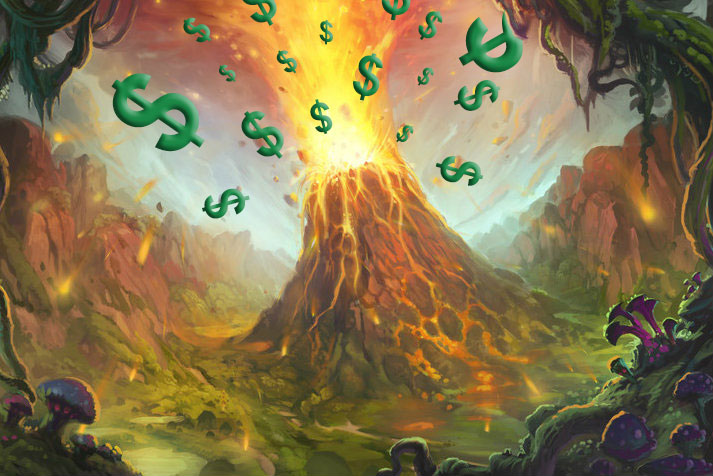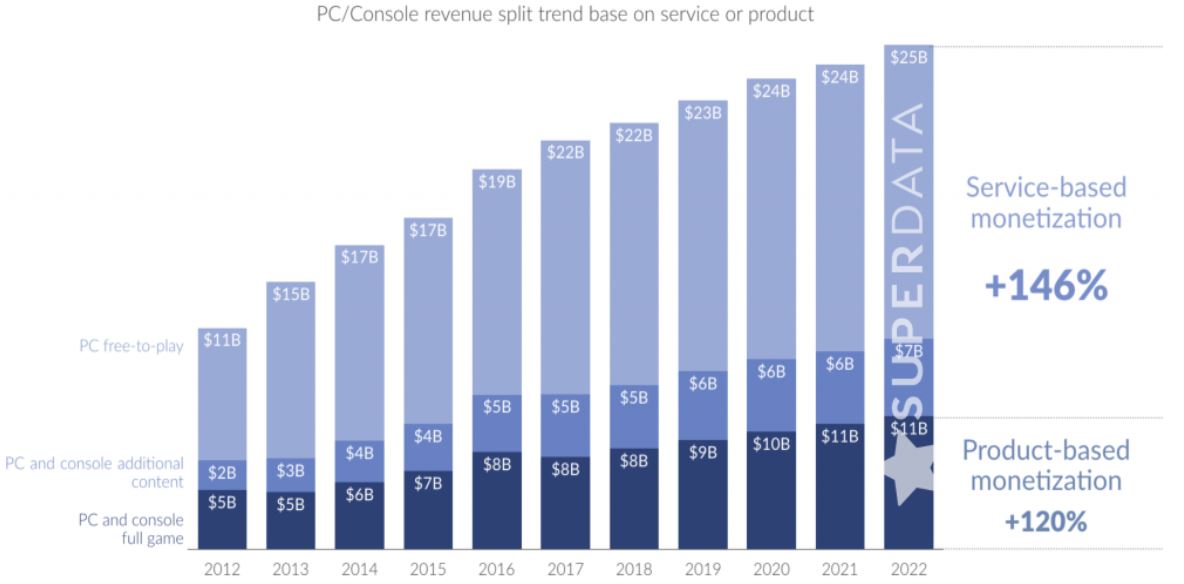Revenue from PC free-to-play microtransactions has doubled since 2012
Microtransactions will generate $22bn of revenue in 2017, compared to $8bn from full game purchases.

PC gamers will spend a whopping $22bn on microtransactions in free-to-play games this year, double the figure from 2012 and nearly three times the revenue generated from full game purchases on PC and consoles combined. That's according to a new report from games data and market research firm SuperData, which suggests that although players are "quick to complain" about monetisation they "continue to support service-based [models] with their wallets".
It's pretty staggering to see the stats laid out: in 2017 full, paid game releases on PC and consoles will generate $8bn. Additional content (including DLC) will raise $5bn. Both of those figures are on the rise, but they're dwarfed by the money PC publishers and developers can make from microtransactions in free-to-play titles.
The firm predicted that PC microtransactions from free-to-play games will reach $25bn by 2022. Have a look at its graph below.

SuperData said: "Walking a fine line between increasing content offerings and engagement (and of course revenue) and alienating gamers, the ongoing experiment of microtransactions has had successes and failures. Although gamers are quick to complain that publishers are excessively monetizing additional content for games, players continue to support service-based monetization with their wallets."
The report is framed, predictably, around Battlefront 2, which isn't free so fits into the "additional content" band. Publisher EA has temporarily removed microtransactions from the game because of player anger, and SuperData calls it the "poster child of a new and uncomfortable growing pain for the games industry".
"It remains to be seen what effect EA’s course correction on microtransactions will have on Battlefront 2, but it’s fair to say the vocal fan community isn’t enthused. Despite this, it’s clear that gamers are continuing to spend on well-executed additional content, and the market presents a massive opportunity for publishers."
The biggest gaming news, reviews and hardware deals
Keep up to date with the most important stories and the best deals, as picked by the PC Gamer team.
Samuel Horti is a long-time freelance writer for PC Gamer based in the UK, who loves RPGs and making long lists of games he'll never have time to play.


